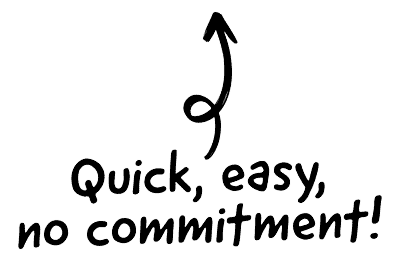National Insurance is a compulsory contribution that most people in the UK have to pay. For employees, it is deducted from their wages by their employer. For self employed people, there are different rules and you have to take responsibility for paying NICs yourself.

In this article, we will explain what National Insurance is, and how self employed people have to pay it. We will also compare the contributions of employees and self employed people, and explain how the system works.
What is National Insurance?
National Insurance is a system of insurance that provides benefits for people in the UK. The benefits include state pensions and other payments such as maternity allowance and unemployment benefit.
 Cutting edge payroll software
Cutting edge payroll software
- Powerful and easy to use
- HMRC & RTI compliant
- Used by payroll pros
 The CRM platform to grow your business
The CRM platform to grow your business
- Great for entrepreneurs
- Powerful data analytics
- Manage sales and data
 Powerful web builder and advanced business tools
Powerful web builder and advanced business tools
- Great for startups
- Powerful web page builder
- E-commerce available
 Supercharged content planning
Supercharged content planning
- Great for marketing
- Better than lists or sheets
- Manage social media
 Create a new website in 10 minutes. Easy.
Create a new website in 10 minutes. Easy.
- Launch your website fast
- Powerful data intuitive
- No coding skills needed
- Most people in the UK have to pay National Insurance contributions. This includes employees, self employed people, and some unemployed people.
- The amount of National Insurance you pay depends on how much you earn. The more you earn, the higher the rate of National Insurance you will pay.
- There are different rates for different types of employment. For example, employees pay a higher rate than self employed people.
What types of NIC does a self employed person have to pay?
Self employed people have to pay two types of National Insurance: Class 2 and Class 4. This is explained below.
How much National Insurance do self-employed people pay?
Class 2 National Insurance is a fixed weekly amount, and is currently £3.15 per week.
Class 4 National Insurance is a percentage of your annual profits, and is currently 10.25 percent, and a further 3.25% for profits over £50,270.
You only have to pay Class 4 National Insurance if your annual profits are over the threshold of £9,880.
| NIC Class | Amount to pay |
|---|---|
| Class 2 | • £3.15 per week |
| Class 4 | • 0% on profits below £9,881 • 10.25% on profits between £9,881 and £50,270 • 3.25% on profits over £50,270 |
How does this differ to an employed person?
Employees pay a higher rate of National Insurance than self employed people. This is because they also receive benefits from their employer, such as sick pay and holiday pay.
Self employed people do not receive these benefits, so they pay a lower rate of National Insurance.
The amount of National Insurance an employed person pays is deducted from their wages by their employer. Self employed people have to pay their NICs themselves.
Paying self employed NICs is different to paying as an employee, but the benefits you receive are the same.
You may have to pay a higher rate of National Insurance as a self employed person, but you will still receive state pension and other benefits.
Make sure you understand how much National Insurance you have to pay, and when you need to pay it. You can find more information on the HMRC website.
How to pay National Insurance as a self-employed person
If you’re a self-employed person in the UK, you need to pay National Insurance contributions (NICs) to HM Revenue and Customs (HMRC).
You usually have to make your first payment by the end of January following the end of the tax year in which you become liable – for example, if you become liable in the tax year 2023 to 2024, you’ll need to make your first payment by 31 January 2025.
The amount of NICs you pay each year depends on how much profit your business makes – you can find out more about this on the HMRC website.
You can choose to pay your NICs monthly or yearly. The deadline for payment is the same regardless of how you choose to pay – 31 January following the end of the tax year.
If you don’t pay your NICs on time, you’ll have to pay a penalty.
What happens if I don’t pay National Insurance when self employed?
If you don’t pay your NICs when you’re self employed, you’ll have to pay a penalty.
- The penalty is usually 50% of the amount of National Insurance you should have paid.
- For example, if you owe £100 in National Insurance, you’ll have to pay a penalty of £50.
- You’ll also have to pay interest on the amount you owe.
If you don’t pay your National Insurance, HMRC may take action to recover the money you owe, such as taking the money from your bank account or sending you a bill.
If you’re having trouble paying your National Insurance, you should contact HMRC as soon as possible.
How to calculate NICs as a self-employed person
You can find out how much National Insurance you need to pay each year by using the HMRC Self-Employment NICs Calculator.
This calculator will also help you work out how much Class 2 and 4 National Insurance you need to pay.
Using payroll software to calculate NICs
If you’re a self-employed person, you can use payroll software to help you calculate your National Insurance contributions.
Payroll software can also help you keep track of your employees’ National Insurance contributions and make sure you pay them on time.
There are many payroll software providers in the UK, so it’s important to compare different products before you choose one.
What records do I need to keep for National Insurance?
As a self-employed person, you need to keep records of your business income and expenses so that you can calculate your NI contributions.
You should keep records of your:
- Business income
- Business expenses
If you’re self employed and have employees, you also need to keep records of their NICs as well.
| Getting professional advice |
|---|
| If you’re self employed and have questions about your NICs, you should speak to an accountant or tax advisor. They’ll be able to give you specific advice about your situation. This is a complex area, so it’s important to get professional advice if you’re unsure about anything. |
FAQ
Yes, you need to pay National Insurance contributions (NICs) to HM Revenue and Customs (HMRC).
The amount of NICs you pay each year depends on how much profit your business makes – you can find out more about this on the HMRC website.
If you don’t pay your NICs when you’re self employed, you’ll have to pay a penalty.
You usually have to make your first payment by the end of January following the end of the tax year in which you become liable. For example, if you become liable in the tax year 2021 to 2023, you’ll need to make your first payment by 31 January 2024.
You can choose to pay your NICs monthly or yearly. The deadline for payment is the same regardless of how you choose to pay – 31 January following the end of the tax year.
You can find more information on the HMRC website.
If you’re having trouble paying your National Insurance, you should contact HMRC as soon as possible.
National Insurance is a system of taxes and contributions in the UK that provides certain benefits for employees, self-employed people, and retirees.
There are two types of NIC that a self employed person has to pay: Class 2 and Class 4.
An employed person only has to pay Class 1 National Insurance.
Class 2 NICs are a flat rate, while Class 4 NICs are a percentage of your profits.

